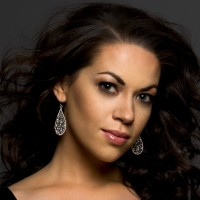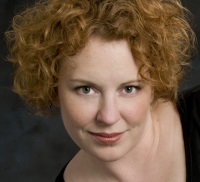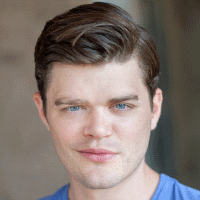Messiah
Saturday, December 16, 2017 • 7:30 p.m.
Seattle First Free Methodist Church (3200 3rd Ave W)
Sunday, December 17, 2017 • 3:00 p.m.
Everett First Presbyterian Church (2936 Rockefeller Ave)
Orchestra Seattle
Seattle Chamber Singers
Clinton Smith, conductor
Amanda Opuszynski, soprano
Melissa Plagemann, mezzo-soprano
Brad Benoit, tenor
Benjamin Sieverding, bass
Program
Georg Frideric Handel (1685 –1759)
Messiah, HWV 56
About the Concert
No other work has become more closely associated with OSSCS than Georg Frideric Handel’s most celebrated oratorio, Messiah. For four decades, audiences have delighted in our complete and uncut performances. This season we again offer two performances: one in Seattle and a second in Everett.
Behind the Music
Get the inside scoop prior to our December 16 Messiah performance! Hosted by SCS chorister Lorelette Knowles, “Behind the Music” explores who and what inspired composers to create. Enjoy a free, fun and informative half-hour session that includes an overview of the music, historical and cultural context for the works, and highlights to listen for during the performance. Begins at 6:30 p.m. (one hour before the performance) at First Free Methodist Church. (No “Behind the Music” talk on Sunday, December 17.)
About the Soloists

Soprano Amanda Opuszynski, hailed for her “luscious,” “powerful” voice and “dazzling technical facility,” returned to Seattle Opera during the 2016–2017 season as the Dew Fairy/Sandman in Hänsel und Gretel and Papagena in Die Zauberflöte, and made her Arizona Opera debut as Bess Erne in the world-premiere production of Riders of the Purple Sage. Notable past engagements include Frasquita in Carmen (Santa Fe Opera, Seattle Opera, Atlanta Opera, Pacific Symphony), Najade in Ariadne auf Naxos (Seattle Opera, Virginia Opera), Musetta in La bohème (South Dakota Symphony), Micaëla in Carmen (St. Petersburg Opera), Johanna in Sweeney Todd (Virginia Opera), Oscar in Un ballo in maschera (Boston Youth Symphony) and Nannetta in Falstaff (Virginia Opera). Ms. Opuszynski has enjoyed apprenticeships with the Seattle Opera Young Artist Program, Santa Fe Opera, Glimmerglass Festival and the Wolf Trap Opera Studio. She is the winner of a prestigious Career Development Award from the Sullivan Foundation and Santa Fe Opera’s Lilian Caroff Meyer Award, and is a two-time regional finalist in the Metropolitan Opera National Council Auditions. Learn more: amandaopuszynski.com, @SopranoAmanda

Mezzo-soprano Melissa Plagemann has been praised by audiences and the press for her “clear, burnished voice” and “mezzo rich with an alto’s strength and a soprano’s shining top edge” (Tacoma News Tribune). She enjoys a busy and vibrant performing schedule throughout the Pacific Northwest and beyond. During the 2017–2018 season she covers the role of Kate Pinkerton (Madama Butterfly) for Seattle Opera. She also joins the Kirkland Choral Society and Philharmonia Northwest for Verdi’s Requiem at Benaroya Hall, and performs Brahms’ Liebeslieder Waltzes for solo quartet and piano four-hands with the Emerald Ensemble at Soma Towers in Bellevue. She rounds out the season with returns to Symphony Tacoma for their performances of Handel’s Messiah, to Pacific Northwest Ballet for The Nutcracker, and to the Tacoma Youth Symphony for a concert of arias by Verdi, Bizet and Bellini. Recent opera roles for Ms. Plagemann include Nicklausse (Tales of Hoffmann), the witch and the mother in Hansel and Gretel, Suzuki (Madama Butterfly), and both the second and third ladies in Mozart’s Magic Flute. She teaches on the faculties of Pacific Lutheran University and Western Washington University.

Tenor Brad Benoit sang many roles with Minnesota Opera during three years in its Resident Artist Program, including Ruiz in Verdi’s Il trovatore, Arlecchino and Lampwick in The Adventures of Pinocchio, Count Almaviva in The Barber of Seville, Gabriele in Casanova’s Homecoming, Lord Cecil in Roberto Devereux, Parpignol in La bohème, the Third Jew in Salome, Gastone in La traviata, and later, as a guest artist, Pong in Turandot. In 2011 he was a featured soldier in the premiere of Kevin Puts’ Silent Night and covered Nicklaus Sprink, a role he sang at the last minute on opening night from the side of the stage to rave reviews. Recent roles include Kaspar in Amahl and the Night Visitors with the Minnesota Orchestra, El Remendado in Bizet’s Carmen, and Dancing Master and Scaramuccio in Ariadne auf Naxos with Minnesota Opera, as well as Cole Porter’s Kiss Me, Kate with the Mankato Symphony. Learn more: @brad_benoit

Bass-baritone Benjamin Sieverding has been recognized by critics for his “surprising depth” (Boulder Daily Camera), “natural gift for comedy” and “full, rich sound” (Ann Arbor Observer). During the 2017–2018 season he returns to Minnesota Opera as Warden Benton in Dead Man Walking. As a two-year resident artist with that company he performed the roles of Frère Laurent in Roméo et Juliette, Max Kane in the world premiere of William Bolcom’s Dinner at Eight, Colline in La bohème, Truffaldino in Ariadne auf Naxos, Sarastro and Sprecher in Die Zauberflöte and Sacristan in Tosca. Mr. Sieverding’s other operatic credits include productions with Madison Opera, Lakes Area Music Festival, the Minnesota Orchestra, Consortium Carissimi, Opera Philadelphia, Opera Colorado and Santa Fe Opera, where he made his debut in the world premiere of Oscar with David Daniels. Upcoming seasons include a debut with Florentine Opera. As an active soloist and recitalist, Mr. Sieverding performs both regionally and internationally. This season will include debuts with OSSCS in Messiah and the Madison Symphony in Janáček’s Glagolitic Mass. Learn more: @bensieverding
Program Notes
Georg Frideric Handel
Messiah, HWV 56
Handel was born in Halle, Germany, on February 23, 1685, and died in London on April 14, 1759. He composed Messiah between August 22 and September 14 of 1741. The oratorio was first performed in Dublin on April 13, 1742, under the direction of the composer. In addition to a quartet of vocal soloists and choir, the work calls for 2 oboes, bassoon, 2 trumpets, timpani, harpsichord and strings.
Handel, renowned in his day as an organist and as a highly prolific writer of Italian operas and English oratorios, was born in Germany in 1685 about a month before J.S. Bach. He received his musical training in Italy, and later became 18th-century England’s “national composer.” Between February and November 1741, Handel — suffering at the age of 56 from various ailments, both financial and physical — withdrew increasingly from public life. At some point that year, the composer received from the Lord Lieutenant of Ireland and the governors of Dublin’s three major charitable institutions an invitation to travel to that city to aid the charities through the performance of his music. Handel was well known in Dublin as a church-music composer, and his works were often played there to benefit charities. It may thus have been this invitation that provided the incentive for Handel to compose “a new sacred Oratorio.” In July of 1741, Charles Jennens, who was responsible for the texts of Handel’s oratorios Israel in Egypt and Saul, gave the struggling Handel the libretto of Messiah, a compilation of biblical texts from both the Old and New Testaments.
On August 22, Handel began to set Jennens’ text to music. He finished the first part of his new oratorio (which deals with the prophecy of Christ’s coming and his nativity) in six days, the second part (which describes Jesus’ suffering, death, resurrection, and ascension, the spread of his gospel, the resistance of the heathen, and the vision of the ultimate triumph of the gospel in the establishment of God’s kingdom) in nine days, and the third part (which celebrates the gift of resurrection and eternal life offered to all through Christ’s victory over death) in six more days, with two or three additional days for completing the orchestration. Regarding Handel’s state of mind during Messiah’s composition, biographer Jonathan Keates observes in his 1992 book Handel: The Man and Music that “etherealized visions of the elderly master refusing food, weeping into the semiquavers and having angelic hallucinations are mostly moonshine.”
In the autumn of 1741, Handel accepted the invitation to visit Dublin, arriving there on November 18 with the completed score of Messiah in his traveling bags, but it was not until April 13, 1742, that the oratorio received its premiere. Seven hundred people were able to squeeze into Dublin’s Musick Hall in Fishamble-street to hear the work performed by the choirs of Dublin’s two cathedrals (totaling fewer than 40 men and boys) and the string band (reinforced occasionally by trumpets and timpani — oboe and bassoon parts were written later), all directed from the keyboard by Mr. Handel himself. The work created a sensation: “Words are wanting to express the exquisite Delight it afforded to the admiring crouded Audience,” exulted Faulkner’s Journal. “The Sublime, the Grand, and the Tender, adapted to the most elevated, majestick and moving Words, conspired to transport and charm the ravished Heart and Ear.” Handel divided his share of the proceeds (about £400), as did the other performers, among Dublin’s three most important charities.
Messiah is unique among Handel’s works, being his only biblical oratorio using texts from the New Testament, and his only “Christian-contemplative” oratorio. Although the text is not a dramatic narrative but an epic-lyric poem celebrating Christian redemption, Handel’s musical approach in setting Jennens’ libretto was decidedly dramatic. The work’s three parts recall the three acts of Italian operas, and the oratorio is indeed a piece designed by a seasoned operatic professional to “entertain,” in the best sense of the word, listeners in a concert room, not chiefly to instruct or edify a congregation or to be used in any sort of worship.
Handel synthesizes the best elements of the three musical traditions in which he was steeped: the Italian, the German and the English. He makes use of Italian forms of musical expression, borrowing, rearranging and transforming into “duet-choruses” (such as “And he shall purify”) some passages from his own Italian love duets. In the “Pastoral Symphony” (entitled Pifa) that introduces the shepherds, Handel alludes to the music of the pifferari, the country bagpipers who descend the Italian mountains during the Christmas season to play in village streets. Handel employs German musical ideas, particularly in the music describing Jesus’ suffering and death, where the jagged dotted rhythms and forceful harmonies have a particularly German expressive quality. In that great “coronation march,” the “Hallelujah Chorus,” melodic fragments echoing the German chorale “Wachet auf” may be heard in “The kingdom of this world” and in “And he shall reign for ever and ever.” Handel’s melodic shapes, vocal treatment, grand anthem-like choruses, and text-setting display the “English character” that has ensured Messiah’s unchallenged supremacy in the English choral repertoire: in such arias as “He was despised” and “I know that my Redeemer liveth,” the rhythms of the music grow out of the natural speech rhythms of the words, so that the music expresses the text directly and powerfully, and then illustrates it almost visually (e.g., “Every valley shall be exalted,” “The people that walked in darkness,” and “All we, like sheep”).
The easy accessibility and glorious variety of the music that results from the confluence of these elements (and which often conceals the exalted art underlying it) has helped to guarantee Messiah’s survival, through a seeming infinitude of “arrangements,” versions and types of presentation, as one of the most popular pieces ever composed. As R.A. Streatfeild observes, “Messiah, if not Handel’s greatest work, is undoubtedly the most universal in its appeal” because it continues to sing to “high and low, rich and poor, wise and foolish alike” a magnificent song of salvation, fresh, vital and full of aesthetic and spiritual grace.
— Lorelette Knowles
